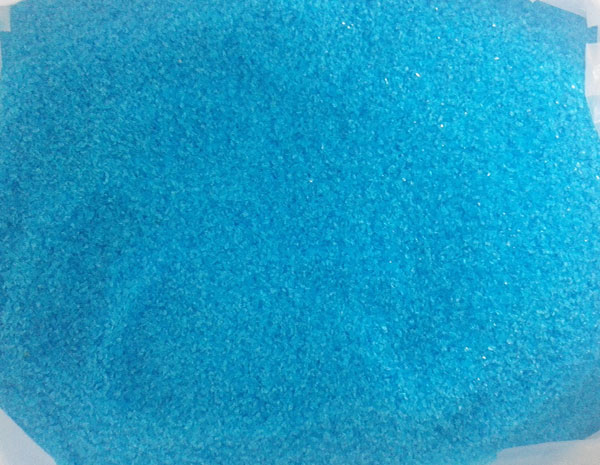What is copper sulfate mainly used for?
Copper sulfate, a chemical compound with a rich history dating back centuries, has found its way into various industries and applications due to its unique properties and versatile nature. From agriculture to science, this compound has proven its worth in a multitude of ways. In this article, we will delve into the main uses of copper sulfate and shed light on its significance across different sectors.
Agricultural Advancements:
One of the primary applications of copper sulfate lies in the realm of agriculture. It is widely used as a fungicide and pesticide to control various plant diseases and pests. Farmers and gardeners often rely on copper sulfate to protect their crops from harmful organisms that can devastate yields. It is particularly effective against fungal infections like downy mildew, powdery mildew, and apple scab. By acting as a preventative and curative agent, copper sulfate contributes to the health and productivity of agricultural endeavors.
Water Treatment and Algae Control:
Copper sulfate's properties extend beyond the fields and into the water. It plays a crucial role in water treatment by effectively eliminating algae and unwanted aquatic vegetation. Ponds, lakes, and reservoirs are often treated with copper sulfate to control algae blooms and maintain water quality. By disrupting the photosynthesis process of algae, copper sulfate helps prevent oxygen depletion and the subsequent ecological imbalances that can occur in aquatic ecosystems.

Laboratory and Research Applications:
Copper sulfate's significance isn't limited to practical applications—it has a notable presence in the realm of science and research. In laboratories, Dynamic copper sulfate is utilized for various purposes, including as a reagent in chemical reactions and a coloring agent in histology and microscopy. Its distinctive blue color makes it a valuable tool for staining samples and enhancing visibility under a microscope. Additionally, copper sulfate is employed in electroplating processes, aiding in the deposition of copper onto surfaces for various scientific and technological purposes.
Art and Craftsmanship:
Copper sulfate's vibrant blue hue lends itself to artistic expression and craftsmanship. It is commonly used in artistic endeavors such as painting, ceramics, and stained glass. The compound's ability to create unique shades of blue contributes to the aesthetic appeal of these art forms. Artists and artisans appreciate copper sulfate not only for its color but also for its malleability and compatibility with various mediums.
Electrolyte and Electroplating Agent:
Copper sulfate's electrochemical properties have practical implications in industries such as electronics and metallurgy. It serves as an electrolyte in electroplating processes, where it facilitates the deposition of a layer of copper onto objects, enhancing their appearance and durability. This electroplating technique is widely used in the production of decorative items, electronic components, and even certain medical devices.
Regulatory Considerations:
While copper sulfate offers a wide range of benefits, it is essential to use it responsibly and in accordance with regulatory guidelines. Overuse or misuse of copper sulfate in agriculture and water treatment can potentially lead to environmental concerns, such as contamination of soil and water bodies. Striking a balance between the compound's efficacy and its potential impact on ecosystems is crucial to ensure sustainable and responsible usage.
Conclusion:
Copper sulfate's versatility and utility have propelled it into numerous industries and applications, making it an invaluable chemical compound with a myriad of uses. From safeguarding crops to enhancing artistic creations, its presence is felt across a spectrum of human endeavors. As we continue to explore the capabilities of copper sulfate, it remains imperative to harness its potential while being mindful of its environmental implications. In a world driven by innovation and resourcefulness, copper sulfate stands as a testament to the symbiotic relationship between science, industry, and creativity.


